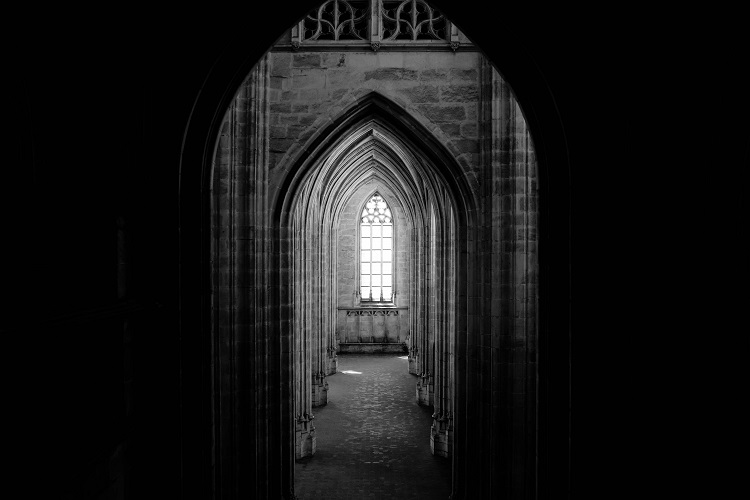It takes a unique combination of a person’s life experience and a writer’s style and perspective to make passages personally moving. Here, I found my heart strings tremble, first, at the moving sendoff to the ethereal Maria Clara, second, at Isagani’s affectionate remembrance of the beauty and serenity of a beloved home, an echo of my own distant memories.
So if you have time dear reader, consider picking up the full text of even just chapters 23 and 24 and listen with your heart to the beating of another’s.

Chapter 21: Manila Types
People flock to the theater for the first show of a French operetta company. Outside, an unkempt Spaniard nicknamed, The Shrimp, chats about the show with Uncle Quico.[1] The Shrimp thinks that the performance sold out because people grew curious as a result of the friar’s strong opposition to it on moral grounds, and because the show’s popular supporters talked about it publicly.
Elsewhere, the student Tadeo is accompanied by a newcomer to whom he gives an overview of the backgrounds of every important looking person they see. Tadeo makes up stories about those he doesn’t really know.
Makaraig, Pecson, Sandoval and Isagani arrive and Tadeo accepts their offer to join them in their theater box.
Chapter 22: The Performance
The performance opens late to an impatient audience due to the delayed arrival of the Captain-General. Across the students’ theater box is one obtained by Makaraig for Pepay, Don Custodio’s dancer, in an effort to get her to influence Don Custodio in their favor regarding the appeal for a Spanish academy permit. They are in good spirits seeing Pepay’s happy looks. Only Isagani is in a bad mood, seeing Paulita with his rival Juanito Pelaez.
Don Custodio, who earlier sided with the friars against the show, is also there under the excuse of critiquing the show. Padre Irene in disguise is likewise in attendance, saying he had been supposedly sent by Padre Salvi as a secret religious police.
At the end of the first act, Makaraig heads off to see Pepay and Padre Irene and learns that the commission has accepted Don Custodio’s recommendation in favor of the Spanish academy, but requires the implementation of the plan to be supervised by a religious order. The students’ participation is to be restricted to the collection of fees. The dejected students leave the theater.
Chapter 23: A Corpse
Since his return from San Diego to rescue Juli, Basilio has been devoting his time to studying, visiting the hospital and attending to a sick and severely opium-addicted Capitan Tiago.
On the night of the French operetta, Basilio is at his studies, but is interrupted by the arrival of Simoun who asks after Capitan Tiago. Basilio informs him of the critical condition of Tiago’s health, but Simoun cuts him off and reveals that a revolution, which came about under his influence, will break out in an hour. He asks Basilio to choose sides.
Basilio reluctantly asks what is expected of him and Simoun asks him to head a group to rescue Maria Clara from the convent. Basilio tells him he is too late, and informs him of Maria Clara’s death as confirmed by a letter from Padre Salvi. Simoun runs out in anguish.
Chapter 24: Dreams
While waiting to meet Paulita, Isagani overhears Ben Zayb talk about Simoun falling ill and refusing to see even the Captain-General’s men. Isagani thinks bitterly about the care given to the rich, and the contrasting lack of attention to sick soldiers returning from fighting abroad.
Paulita arrives and acts resentful at Isagani for his having paid too much attention to the operetta performers. She forgives him and explains she was only at the performance hoping to see him. They laugh that it is actually Doña Victorina, Paulita’s aunt, who is in love with Juanito. Isagani reveals that Don Tiburcio, Doña Victorina’s husband, is still in hiding in his uncle’s home.
This turns their conversation to Isagani’s town, for which he expresses a deep love, as he describes its beauty and his happy memories of the place. But Paulita refuses to travel to it without a coach. Isagani is optimistic, and eventually expects progress and a much better future for the Philippines owing to the youth in Madrid working for its welfare. Paulita is doubtful and declares these thoughts as mere dreams.
Chapter 25: Smiles and Tears
Makaraig and the other students celebrate their loss at a pansiteria[2] and put on an air of forced cheer. They launch into mocking jokes, dedicating the soup bones to Don Custodio to make a project out of.
They then dedicate the lumpia[3] to Padre Irene, the crab omelette to the friars for the crabs that they are, and the stewed noodles to the disorganized government. Pecson then jokingly mimics an Augustinian preacher. He jokes about how the friars are always present in life, how their hairy limbs sustain unity, and the need for scapularies and masses to occupy people and have something to spend their money on.
The students later notice they are being watched. They spot Padre Sibyla’s man leaving the pansiteria and entering Simoun’s carriage with an unknown man.
Notes and References:
1. Guerrero’s translation Filipinizes and spells this as Kiko. Jose Rizal, El Filibusterismo, Translated by Leon Ma. Guerrero, (Makati City: Guerrero Publishing, Inc., 2012), 176.
2. A pansiteria during this period in time primarily referred to a Chinese restaurant. Among its main dishes were pansit or noodles.
3. Lumpia in this story meant fried spring rolls.
Recent Comments